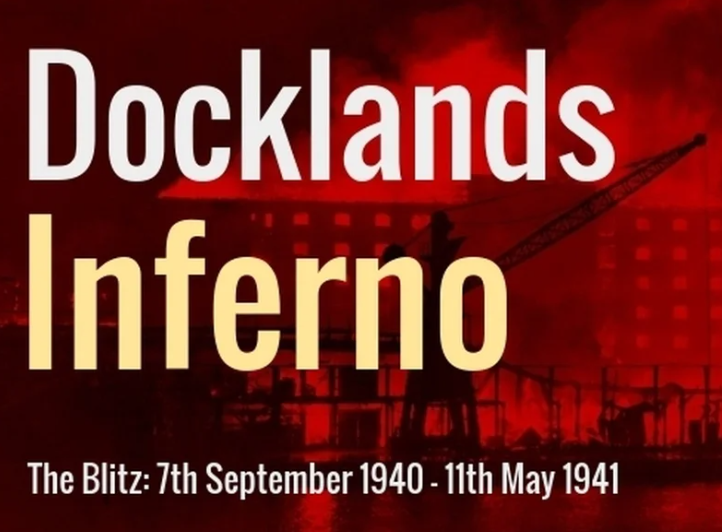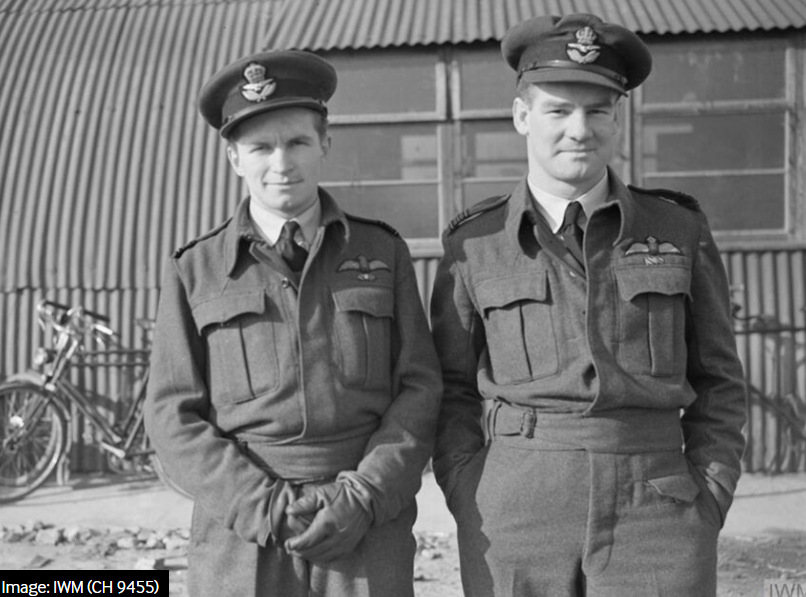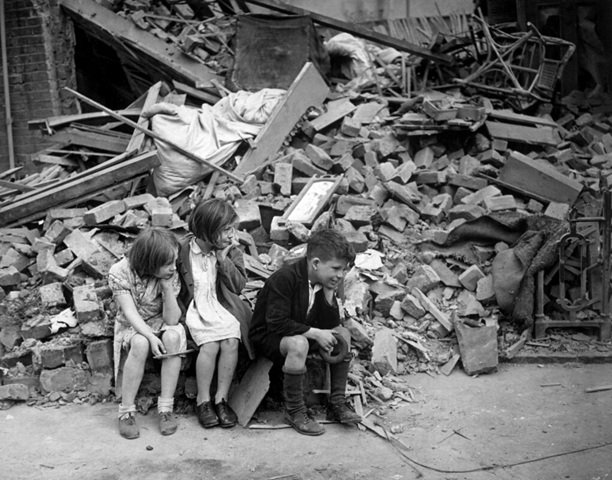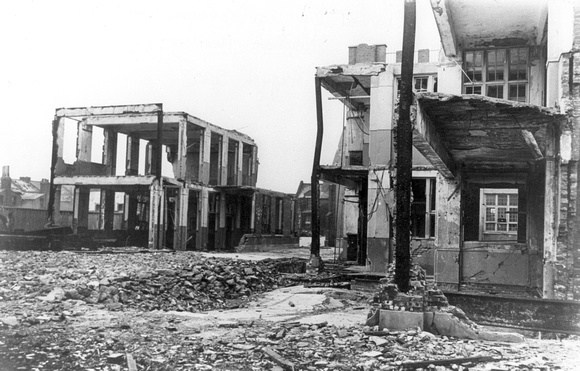

Infographic retrieved on 12/02/2022 from Twitter @BBCiWonder

The Battle of Britain was a long series of air attacks against Great Britain during World War II. Germany, led by Adolf Hitler, wanted to invade Great Britain. To prepare for that, the German air force, or Luftwaffe, was sent to attack British planes and ships. The attacks lasted for several months in 1940. However, the battle was won by Britain.
Image and Abstract retrieved on 12/01/2022 from Encyclopedia Britannica

Image source:www.thesecondworldwar.org/
East London's docks and riverside factories played a crucial strategic role in the Second World War, supplying the rest of the country with essential supplies and services and serving as the starting point for a number of important military projects. The Nazis dropped around 25,000 bombs on it in an attempt to impact the national economy and war production.

Image source: www.iwm.org.uk
RAF pilots were at the heart of the Battle of Britain. Just 3,000 men stood between Britain and a German invasion – those who Winston Churchill famously called ‘The Few’. From terrifying dogfights in the skies over England, to the impact of heavy losses and extreme fatigue, listen to the memories of men who played a vital role in Britain’s struggle for survival in the summer of 1940.
![]()
Click the link above to view books on The Blitz found in the library. Use your school login details to access infiniti.

An aircraft spotter scans the skies above London, England, during the Blitz of World War II.
New Times Paris Bureau Collection/USIA/NARA
Image source: Britannica School
The Blitz was an intense bombing campaign that Germany launched against Britain in 1940, during World War II. For eight months German airplanes dropped bombs on London, England, and other strategic cities where factories and other important industries were based. The attacks were authorized by Germany’s chancellor, Adolf Hitler, and undertaken by the Luftwaffe, the German air force. The offensive came to be called the Blitz after the German word “blitzkrieg,” meaning “lightning war.”

Image source: thehistorypress.co.uk
Over a million children were evacuated from towns and cities and had to adjust to separation from family and friends. Many of those who stayed, endured bombing raids and were injured or made homeless. All had to deal with the threat of gas attack, air raid precautions (ARP), rationing, changes at school and in their daily life.

Image source: londonsroyaldocks.com
Attacks from the air during World War II had a devastating effect on London’s Royal Docks and the people who lived and worked in the area. The bombings began in July, 1940, but the start of what’s known as The Blitz was marked later that year by Black Saturday.
The links below will help you with your research on World War 2 in Britain
Remember to be academically honest and reference information that isn't yours